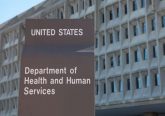With Roe gone, Ohio’s first March for Life emphasizes support for pregnant women
Denver Newsroom, Oct 6, 2022 / 12:05 pm
Pro-life advocates held the first Ohio March for Life in Columbus on Wednesday to celebrate the end of the Roe v. Wade decision and to rally support for pro-life laws and pregnant women in need.
“What we saw was just incredible,” Jeanne Mancini, event speaker and president of the March for Life Education and Defense Fund, told CNA Oct. 5. “The Ohio pro-life grassroots are really enthusiastic, very young.”
According to Mancini, the attendees wanted “to show the world that love is the heart of the pro-life movement” and “to do everything possible to support women and families facing unexpected pregnancies.”
Mancini heads the organization responsible for the National March for Life, which partnered with Ohio Right to Life to run the statewide event. She estimated attendance at the Columbus event to be about 4,000 people.
“It’s just a tremendous gain that Roe, after 50 years, has been overturned,” she said. “The much loftier goal is to change hearts and minds so that abortion will be unthinkable in our culture.”
The event began with a rally outside the Ohio Statehouse followed by a march.
Speakers included Bishop David Bonnar of Youngstown; David Forbes, pastor of the Columbus Christian Center; Peter Range, executive director of Ohio Right to Life; Margie Christie, president of the Right to Life Action Coalition of Ohio; State Rep. Jena Powell; and Dr. Alveda King of Alveda King Ministries.
Ohio mother Ruth Cabrera-Henriquez told the rally her story of how she chose life for her unborn son after a doctor recommended that she procure an abortion.
Aaron Baer, president of the Ohio Christian public policy group the Center for Christian Virtue, was another speaker. He said the March for Life is “a celebration of all we’ve accomplished and a recommitment to serving those in need.”
“Ohio is a pro-life state,” Baer said. “From the passage of the Heartbeat Bill to the pregnancy centers throughout our 88 counties, Ohio has made protecting unborn children and their mothers a priority.”
An Ohio law banning abortion after a fetal heartbeat can be detected, which is about six weeks into pregnancy, took effect in June. However, Hamilton County Judge Christian A. Jenkins, a Democrat, temporarily blocked the law for two weeks in mid-September and then extended the ban another two weeks.
Mancini noted the need for legislative efforts to protect the right to life of the unborn. Personal involvement, she said, can help “build a culture of life.” She encouraged people who wish to become more involved in the pro-life movement to visit the March for Life website for resources.
She praised the Ohio-based organization Heartbeat International for its work to help pregnant women and families. The organization is a pro-life information resource and directory for pregnancy care centers across the U.S.
“Pregnancy care centers, of course, help families when they’re facing an unexpected pregnancy, and they do so out of the goodness of their heart,” Mancini said. Across the U.S., she said, these centers provide over $270 million annually in free resources to families facing pregnancies and newborn children.
“We’re going to need to do everything we can to help moms in need,” she said. “The pro-life movement needs to increase our safety net for families facing unexpected pregnancies.”
According to Mancini, the end of the Roe v. Wade pro-abortion rights Supreme Court precedent could mean 200,000 fewer abortions in 2022 across the U.S. as some states enact abortion restrictions.
Last month the Ohio Department of Health released figures showing that 21,813 induced abortions were performed in the state in 2021, an increase from 20,605 the previous year. More than 60% of abortions took place before nine weeks into pregnancy. Ohio Right to Life said it expected the number of abortions to have been reduced during the three-month period in which the state Heartbeat Law was in effect.
On Wednesday morning before the Ohio March for Life, Youngstown’s Bishop Bonnar celebrated Mass at St. Joseph Cathedral in Columbus.
“The pro-life movement has much to be grateful for as we enter this rich prayer of thanksgiving. Our collective voice has been heard. Our prayers have been answered,” Bonnar said in his homily. “And yet, our efforts are not complete, as there are still more prayers to be prayed and more work to be done to eradicate the culture of death. We must continue to promote the culture of life and to protect the dignity of the human person from conception until natural death.”
The bishop cited the example of St. Joseph as a protector of life. He invoked the Christian duty to be “mindful of the poor.” This includes those without money, possessions, or relationships, but also those who are “without hope, voice, or opportunity,” like the unborn, he explained.
He encouraged the congregation not to disregard the lives of those who think differently than they do, “despite the sharp and painful differences that divide us not just on the issues of life but so much more.”
“We cannot dismiss the fact that God created them, too. They are life, too,” Bonnar said.
“May the Eucharist we receive today empower us to continue our march forward to ‘welcome, cherish, and safeguard’ life always with a heart for the poor,” the bishop said, “especially the unborn and moms and families in need with a firm commitment to prayer to the one God in whom we are all brothers and sisters.”













